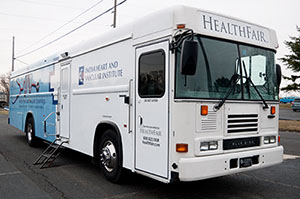Medicare Spending Variations in States
 The idea that uneven Medicare health care spending around the country is due to wasteful practices and overtreatment—a concept that influenced the federal health law – took another hit in a study published in May 2013. The paper concludes that health differences around the country explain between 75 percent and 85 percent of the cost variations.
The idea that uneven Medicare health care spending around the country is due to wasteful practices and overtreatment—a concept that influenced the federal health law – took another hit in a study published in May 2013. The paper concludes that health differences around the country explain between 75 percent and 85 percent of the cost variations.
“People really are sicker in some parts of the country,” said Dr. Patrick Romano, one of the authors.
That’s a sour assessment for those hoping to wring large savings out of the health care system by making it more efficient. Some, such as… Continue reading
Benefits of Healthfairs are Questioned
 Hospitals hoping to attract patients and build their brands are teaming up with medical-screening companies to promote tests aimed at consumers worried about potentially deadly heart disease or strokes.
Hospitals hoping to attract patients and build their brands are teaming up with medical-screening companies to promote tests aimed at consumers worried about potentially deadly heart disease or strokes.
What their promotions don’t say is that an influential government panel recommends against using many of the tests on people without symptoms or risk factors. The panel says such screenings find too few problems to outweigh their drawbacks, which include false positive results, follow-up procedures and potentially unnecessary surgery. Other medical experts warn that the tests could needlessly raise health-care spending.
Inova Health System, one of the Washington, D.C., region’s largest… Continue reading
Curbing Healthcare Costs is Doctors’ Job
 There is a lot of talk about healthcare cost reduction. In recent years, consumers have increasingly been encouraged by employers and insurers to help control rising health care costs by avoiding unnecessary tests, buying generic drugs and reducing visits to the emergency room, among other things. The hope is that a patient better educated and more engaged in health decisions will choose options that will promote better health and decrease costs.
There is a lot of talk about healthcare cost reduction. In recent years, consumers have increasingly been encouraged by employers and insurers to help control rising health care costs by avoiding unnecessary tests, buying generic drugs and reducing visits to the emergency room, among other things. The hope is that a patient better educated and more engaged in health decisions will choose options that will promote better health and decrease costs.
Such “patient engagement” efforts assume that patients welcome the opportunity – or at least are willing – to get more involved in their own care. But as a study… Continue reading

